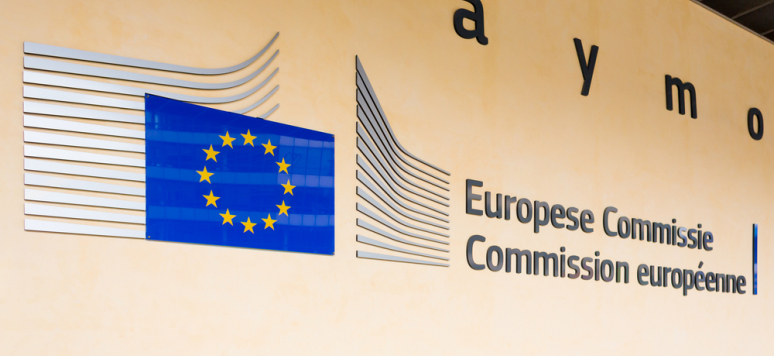L'Ifri dans les médias - China's Mix of Aggressive and Charming Coronavirus Diplomacy could Worsen Europe's Fractures, Report warns

A prominent French think tank has warned that China's so-called "mask diplomacy" amid the COVID-19 coronavirus pandemic threatens to further exacerbate divisions within the European Union, with Beijing tailoring its approach to suit different nations. The French Institute of International Relations (IFRI) published a new report Thursday detailing how coronavirus could alter EU-China relations, both during the outbreak and in the long-term.
This year was already set to be a pivotal one for relations between Brussels and China as questions of commercial and political influence come to the fore. The heated debate around 5G licensing continues, with the U.S. pressuring its European allies to block Chinese firm Huawei from contracts over security concerns.
Meanwhile, negotiations are ongoing for a broad investment deal between the two mammoth economies, with the EU demanding intellectual property protection and fair access for European firms to the huge Chinese markets—long-time Western bugbears.
President Xi Jinping was scheduled to travel to Leipzig, Germany to meet with leaders at the EU Summit in September, but this has been thrown into doubt by the COVID-19 pandemic. Indeed, the ripples of the crisis could yet recast EU-Chinese relations.
The IFRI report said China's diplomatic program has now "gone into overdrive" as it battles accusations of allowing the novel coronavirus to spread, and failing to warn the international community of the danger or be transparent about its own number of infections and deaths.
"Chinese diplomats have become more visible and proactive across much of Europe, particularly on social media," the report explained. China has rejected any suggestion that it mishandled the outbreak or tried to cover up its scale and severity.
Chinese officials have cast international criticism as an effort to divert attention away from the mishandling of the pandemic by Western nations, particularly by President Donald Trump's administration in the U.S. On Tuesday, Chinese Vice Premier Le Yucheng told NBC News that his country had been "open, transparent and responsible."
Nonetheless, China has been accused—including by the EU—of spreading disinformation [1] about the pandemic. A foreign ministry spokesperson was even among those who alleged, without evidence, that the U.S. Army was to blame for the outbreak in Wuhan.
Multiple lawmakers in Europe and the U.S. have called for an international investigation into the origins of COVID-19, a proposal dismissed by Beijing. On Friday, EU Commission President Ursula von der Leyen agreed [2] that such a probe would be helpful.
The IFRI said that existing tensions in the EU-China relationship [3]—for example over trade, investment and human rights—will likely "become more prevalent as time wears on."
But the China question is also creating fractures within the EU, the report warned. Some EU nations in central, southern and eastern Europe—plus some nations in the Balkans—have been more open to Chinese investment than their western counterparts. Leaders in Hungary and Serbia [4], for example, have lauded Chinese support during the coronavirus crisis and downplayed EU assistance.
The IFRI report said Beijing is tailoring its approach to different countries based on these divisions. "There is a diversity in methods that ranges from "low key" in countries like Latvia or Romania; "charm offensive" in Poland, Portugal, Italy or Spain; or even "provocative or aggressive" towards Sweden, Germany or France, the document explained.
"China is becoming an increasingly divisive topic of internal political debate in many European countries," the report added. "At the same time, China's actions toward Europe in this time of crisis seem to amplify the fractures across the continent."
China was quick to assist European nations when the coronavirus took hold on the continent. Beijing organized large transfers of medical equipment—an opening move in expanding its own influence via assistance, in what has come to be known as "mask diplomacy."
But the move somewhat backfired. Multiple EU nations have rejected Chinese supplies for being faulty or otherwise inadequate [5]. This week, U.K. officials said that 250 ventilators supplied from China could have endangered the lives of patients if used.
Chinese authorities have introduced new customs checks to ensure the quality of medical exports, but officials are still struggling to clamp down on faulty products. Furthermore, these new restrictions have slowed exports, with the State Department even urging Beijing [6] to speed up the process.
European leaders have steered clear of the vociferous attacks launched on Beijing from Washington. Trump and key allies, including Secretary of State Mike Pompeo, have directly blamed China for the outbreak and threatened retaliation.
Both have even suggested that the outbreak came from a research laboratory in Wuhan, rather than a wildlife market theorized since the start of the crisis. U.S. intelligence agencies are investigating the theory, but there is no publicly available evidence to support it. The New York Times noted this week that the Trump administration is leaning on intelligence officials to lend credence to the lab allegations.
Though the EU has largely stayed above the U.S.-China disinformation war, the IFRI noted that "debates across Europe have not been immune to the U.S.-China rivalry, and this is likely to be a key feature as debates move toward more structural issues in a post-COVID-19 world."
Those advocating for Europe's "ever closer union" have long called for a more coherent and effective EU foreign policy. The bloc has understandably struggled to balance the demands of its 27 member states, and when faced with pressing issues—for example Russian aggression, the collapsing Iran nuclear deal or repeated migrant crises—the union has often been found wanting.
IFRI argued that the China question could yet "prove to be a catalyst for the emergence of the much-heralded 'geopolitical Europe.'" The group's report explained that China "has recently sparked common European initiatives on issues such as investment screening, 5G and industrial policy, and galvanized strategic policy thinking in a number of capitals."
> Lire l'article sur le site de Newsweek [7]
